Wetlands International, Tanzania, together with the Kibiti District Office and Tanzania Forest Services Agency, were last month honoured to host the Uhuru Torch at one of our mangrove restoration sites christened Kihingi in the Rufiji delta.
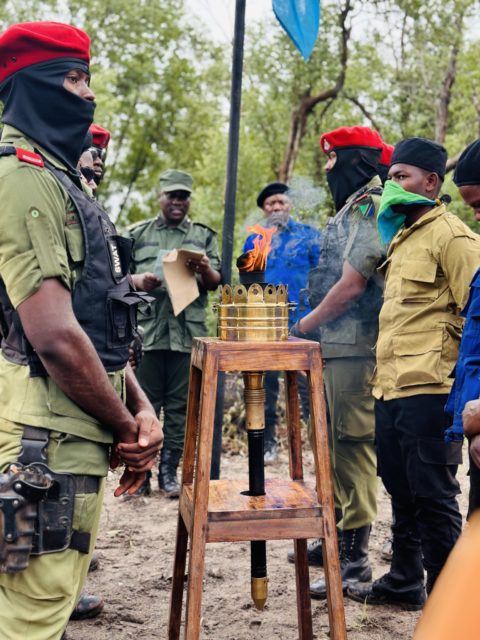
Davies Mlowe, Tanzania Forest Services Agency Manager based in Kibiti District reads the opening speech during the ceremony at Kihingi restoration site in Rufiji delta
A national symbol that stands for freedom, the Uhuru Torch fosters national unity, hope, peace, integrity, respect for human dignity and solidarity. It was inaugurated on Independence Day in 1961 by Tanzania’s founding president, Mwalimu Julius Nyerere and later taken up Mt Kilimanjaro to symbolise national illumination. Funded by the Government, the cavalcade which includes a torch-running team and its leaders, is appointed by the Office of the President. Led this year by Committee Chairman Abadalla Shaib Kaim, they visit and run through all districts bearing the Uhuru Torch from March to October to enhance to development activities.
The selection of project sites to visit is elaborate, involving various agencies in the national government and local administration. Our mangrove restoration project in Rufiji was the only environmental initiative selected in the entire Coast Region this year.
This year’s theme, ‘Conserve environment, preserve water sources to protect ecology and ensure sustainable development’ aptly captures the challenge of conserving wetlands ecosystems which, in Tanzania, face significant threat from land use change and unsustainable resource exploitation. These threats have resulted to changes in water quality and quantity, increased pollution, declining key biodiversity, and a rise in the impacts of climate change.
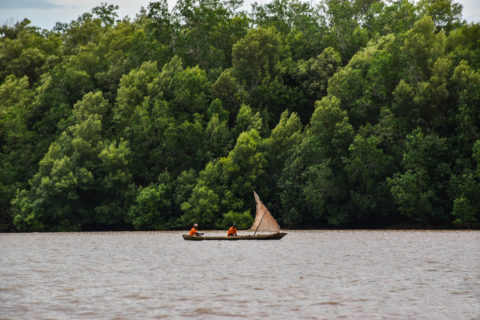
The Rufiji delta is the largest single mangrove forest in Eastern Africa, it’s a watershed coverage of about 20 per cent of the country’s land mass making it the most important fishery along Tanzania’s coastline. In addition, Rufiji delta mangrove ecosystem is a biodiversity haven and a bountiful habitat for many iconic species, ranging from fish, migratory water birds, sea turtles, crabs and shrimp that thrive in mangrove shallows. However, the mangroves in the delta are threatened mainly by habitat conversion, climate change, invasive species and upstream infrastructural development.
During the national launch of this year’s Uhuru Torch race in Mtwara Region by Prime Minister Kassim Majaliwa last March, the Minister of the State in the Prime Minister’s Office (Labour, Youth, Employment and Persons with Disabilities), Prof. Joyce Ndalichako emphasised that the Uhuru Torch marathon encourages citizens to participate in social development.
“Uhuru Torch will help create public awareness on calamities caused by destruction of the environment and its effects on water sources,” stated Ndalichako.
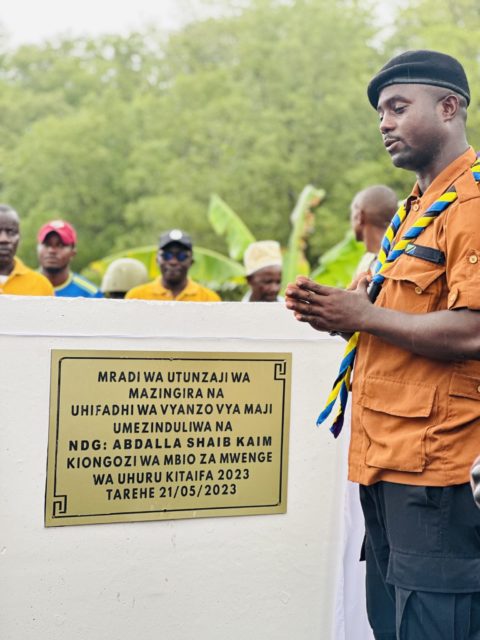
Abdalla Shaib Kaim, Chairman of 2023 Uhuru Torch race speaks after unveiling a foundation stone at Kihingi site in Rufiji delta
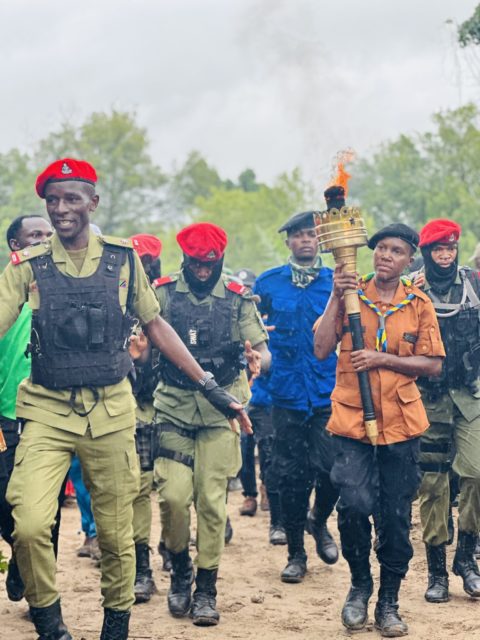
The cavalcade with the Uhuru Torch as they exit the Kihingi restoration site in Rufiji delta
The presence of the distinguished Uhuru Torch in the Rufiji delta on that rainy day helped to shed light to the local community, and the country at large, on the importance of mangroves conservation and restoration. Wetlands International presented the collaborative work undertaken throughout the delta and components of the Rufiji Delta Management Plan that was revised in 2021.
Uhuru Torch Committee Chairman Abdallah Shaib Kaim commended Wetlands International, TFS, Kibiti District Council and the community for the work we have accomplished in the Rufiji delta.
“All Tanzanians need to be environmentally conscious particularly in safeguarding water resources considering the environment pollution in wetlands that is impacting both people and biodiversity and exacerbating climate change effects,” he stated.
Dr Fredrick Mngube, Wetlands International Programme Coordinator in Tanzania, thanked the Government for honouring the mangrove restoration efforts in Rufiji and appreciated the support the programme has received from the Tanzania Forest Service (TFS) state officials, among them Coast Regional Commissioner, Abubakar Kunenge, and Kibiti District Commissioner, Col. Joseph Kolombo.
“We are privileged that the Uhuru Torch Committee has recognised our tireless efforts in the sustainable conservation of the environment, preservation of water sources to protect the ecology and ensure sustainable development.,” said Dr Mngube.
Wetlands International has been supporting initiatives to address the drivers of mangrove wetlands loss and promote their restoration and conservation in Tanzania since 2017 in close collaboration with government institutions, local communities, civil society organisations and development partners.
Lead image: Drs. Fredrick Mngube (R) and Emmanuel Japhet with banner displays at Kihingi mangrove restoration site

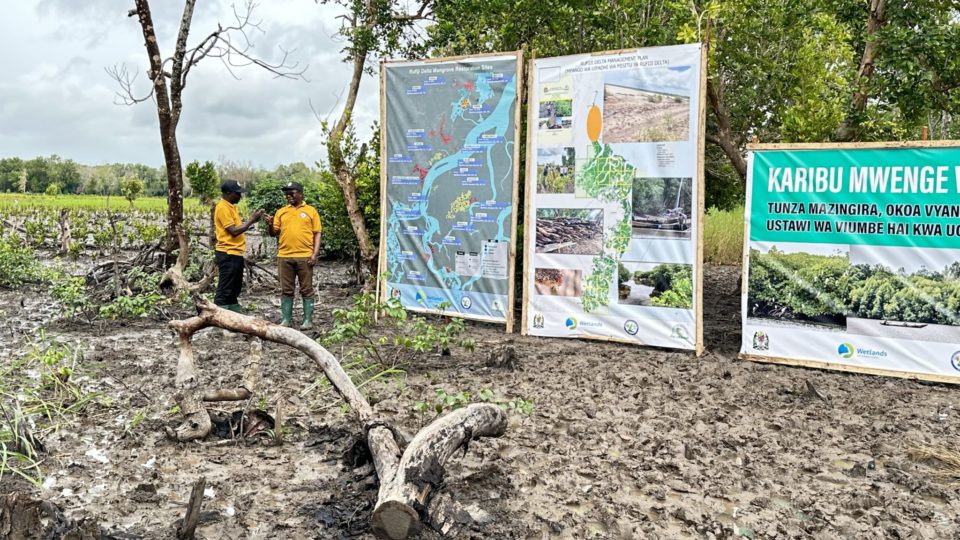
Leave a comment